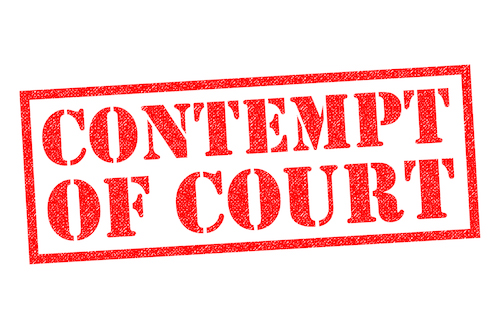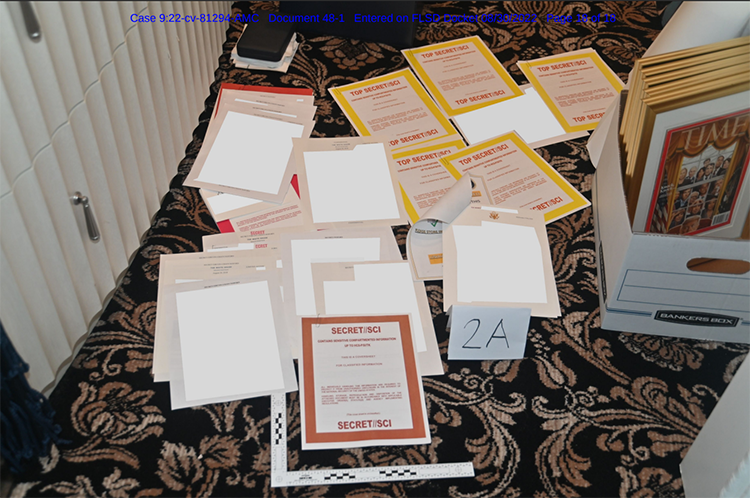CAFC Affirms Contempt Finding Following Violation of Judge Connolly’s Standing Orders
“Assessing Judge Connolly’s contempt order under the Third Circuit’s abuse of discretion standard, the Federal Circuit noted that compelling the in-person appearance of LaPray, Backertop’s sole representative, was critical for investigating Backertop’s alleged misconduct.”
On July 16, the U.S. Court of Appeals for the Federal Circuit (CAFC) issued a precedential decision in Backertop Licensing LLC v. Canary Connect, Inc. affirming a pair of orders entered by U.S. District Judge Colm Connolly of the District of Delaware. Connolly issued a civil contempt finding and monetary sanctions against the sole officer of a patent owning plaintiff who failed to appear at multiple court-ordered evidentiary hearings. This latest vindication of Judge Connolly’s standing orders on third-party litigation financing writes a new chapter in the ongoing story of patent monetization firm IP Edge and its role in directing several infringement cases filed in Delaware district court.
Contempt Order, Monetary Sanctions Entered After Repeated Refusals to Appear In-Person
Judge Connolly’s standing orders providing heightened reporting requirements for the identities of real parties in interest and third-party litigation financiers have created some controversy regarding disclosures of sensitive corporate information. However, on several occasions, the Federal Circuit has declined to issue mandamus relief challenging those orders. In the present appeal, violations of these standing orders led Judge Connolly to order evidentiary hearings that revealed IP Edge’s relationship to several seemingly unrelated cases brought by plaintiff companies, including Backertop, represented by attorneys in litigation that had been managed by IP Edge.
In Backertop Licensing, Judge Connolly had ordered Backertop’s purported owner, Lori LaPray, to disclose documentation on attorney communications and a declaration identifying Backertop’s assets. After Backertop had entered a joint stipulation of dismissal in April 2023, both of Backertop’s attorneys filed motions to withdraw due to communication issues related to the case. Then in May, Judge Connolly denied Backertop’s motion to set aside the court’s production order as overly broad, and ordered LaPray and the withdrawing attorneys to attend an in-person hearing on June 8 to better understand the relationship between Backertop and its counsel.
LaPray informed the Delaware district court that she would be unable to attend the June hearing due to previous travel plans, paralegal work scheduled throughout the summer and childcare obligations that made travel difficult. The district court rescheduled the hearing for July 20, denying LaPray’s requests for telephonic or video conferencing as she was the sole person affiliated with Backertop, which had filed a dozen infringement suits in U.S. district courts. LaPray missed the July 20 hearing, leading Judge Connolly to enter an order to show cause on issuing civil contempt orders. Following a hearing, which LaPray also didn’t attend, the district court entered a finding of civil contempt and monetary sanctions of $200 per day until LaPray appeared in court in person.
Imposing FRCP 45’s Requirements on a Court Would Be Illogical
While Judge Connolly’s civil contempt order was interlocutory in nature and typically non-appealable, the Federal Circuit found jurisdiction to consider LaPray’s appeal under Third Circuit procedural law. Characterizing LaPray as a non-party to Backertop’s case, the Federal Circuit cited several Third Circuit cases holding that a contempt order on a non-party provides the finality necessary for appellate standing.
At the trial court, Backertop had opposed Judge Connolly’s order to compel LaPray’s appearance as exceeding the district court’s geographical jurisdiction under Federal Rule of Civil Procedure (FRCP) 45. Although the district court found that the FRCP 45 argument was forfeited as it was raised for the first time in a motion to reconsider filed after the July 20 hearing date was set, it ruled on the merits that the geographical limits of the rule only impacted subpoenas requested by an attorney or party. Agreeing, the Federal Circuit noted that imposing the requirements of FRCP 45 on a court would be illogical, adding that “the absence of an express limit on sua sponte court orders in FRCP 45 alone is dispositive.” As a result, the Federal Circuit held that the district court’s inherent powers gave it authority to subpoena LaPray.
Assessing Judge Connolly’s contempt order under the Third Circuit’s abuse of discretion standard, the Federal Circuit noted that compelling the in-person appearance of LaPray, Backertop’s sole representative, was critical for investigating Backertop’s alleged misconduct. The Third Circuit has recognized the importance of observing witnesses in person to make credibility determinations in cases like Dia v. Ashcroft (2003).
Although another district court may have ordered a video or telephonic conference, the Federal Circuit found that it was reasonable for Judge Connolly to compel LaPray’s attendance in light of the alleged misconduct, especially given the attorney withdrawal and issues with Backertop’s document production, including missing cover letters and attachments. Further, while the district court accommodated LaPray by moving the hearing to the July 20 date, LaPray never proposed alternative dates or identified specific issues with traveling other than continuing childcare obligations, leading the Federal Circuit to affirm the sanctions entered against LaPray by the Delaware district court.
Image Source: Deposit Photos
Author: chrisdorney
Image ID: 143511463
Steve Brachmann
Steve Brachmann is a graduate of the University at Buffalo School of Law, having earned his Juris Doctor in May 2022 and served as the President of the Intellectual Property […see more]







